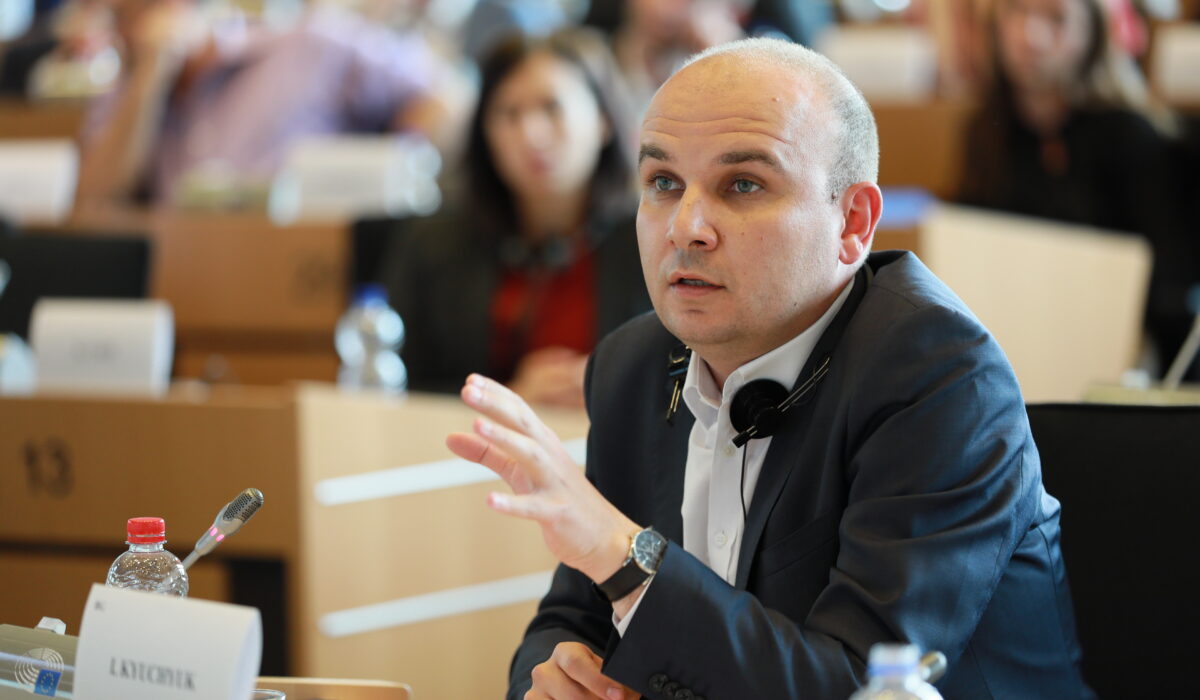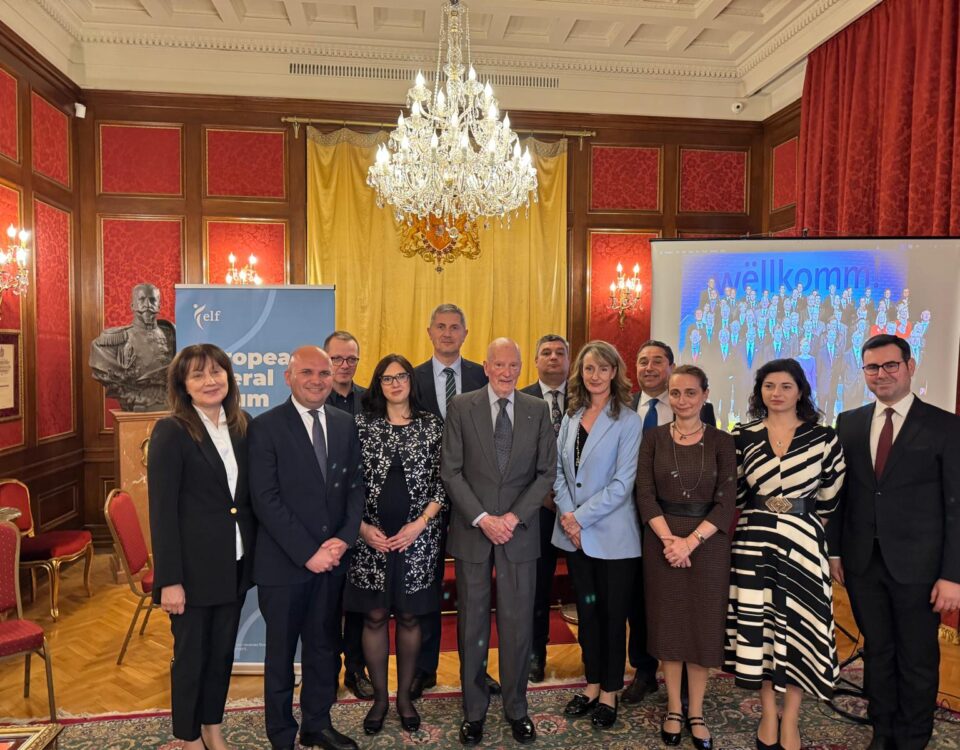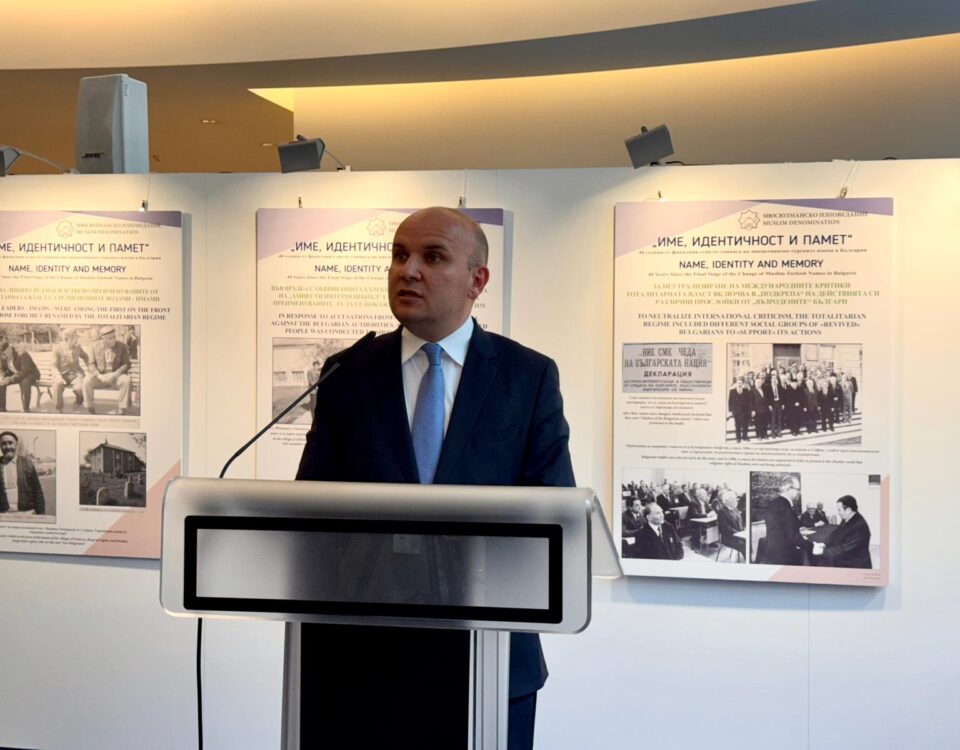
MRF MEPs voted for an ambitious EU budget and immediate financing of the recovery strategy
May 15, 2020
North Macedonia´s elections: crucial test of democratic maturity
June 30, 2020Mr Kyuchyuk, you are the spokesperson on the Western Balkans for the Renew Europe Group in the EP. At the last European Council, it was decided to allocate 3.3 billion euros to the Western Balkans for dealing with the consequences of the COVID-19 pandemic. However, the EU focused on socio-economic measures and did not specifically discuss a possible date for the start of the accession talks for North Macedonia and Albania. Why?
The Zagreb Council reaffirmed the European perspective for the countries of the Western Balkans, and this was a clear signal during such a severe crisis. When the world is under a global quarantine, Europe has shown that it is opening up to the countries in the region. In addition to targeted assistance to address the effects of COVID-19, the EC is also working on an ambitious economic package. The idea is to involve the six countries at a very early stage in the EU’s flagship initiatives, so that they are not just passive observers, but rather that we could build a new Europe together. And to add an important point to that. We are talking about the involvement to the digital and ecological transformation of the world.
On the other hand, they will have a place at the Conference on the Future of the EU.
The European Commission is due to come up with a working negotiations framework for North Macedonia and Albania in June, to be approved by the European Council, in order to convene the intergovernmental conferences that will formally set the date for the start of negotiations.
You are the Standing Rapporteur for North Macedonia, when is the date for negotiations expected to be set and are there any conditions that the country must fulfil in order to get it? We see that Brussels had to call on Skopje to implement the bilateral agreements with Greece and Bulgaria.
In the recent years, the Republic of North Macedonia made great progress on its path to NATO and the European Union. The politicians there have come a long way, they managed to find public consensus on very difficult matters. We also saw how each of the political forces in parliament made compromises with their own positions. The Treaty of Friendship, Good Neighbourliness and Cooperation with Bulgaria and the Prespa Agreement are part of these efforts. Representatives of the European institutions have always stated that it is imperative that both treaties be respected. Such was as well the official position of Skopje expressed to me. Both documents have been cited as a historic success of the Macedonian foreign policy, paving the way for the country to join NATO and the EU. Now, North Macedonia is facing important parliamentary elections, which will need to meet the international community’s expectations for democracy.
The anti-Bulgarian rhetoric in North Macedonia yet again gained momentum. Throughout the election campaign, our country was even described as “fascist” for not saving the Macedonian Jews as well. There are many unresolved historical disputes between the two countries, is Bulgaria’s position correct and what conditions should we define for providing our support to North Macedonia?
Bulgaria and North Macedonia are neighboring, friendly countries, sharing a common history, and I believe a common future within the EU. Harsh words have been used in the recent weeks, and as we know, words linger for a long time in politics. Everything that has been achieved should not be crossed out so easily. We should not always return to the starting point. In all likelihood, common wording will be sought. That is why the joint history committee was set up. I think it is in everyone’s interest for the committee to continue working. And politicians need to continue creating an environment for economic, cultural and people-to-people contacts. I say this not as a politician, but as a person thinking about a common future.
Let us go back to the corona crisis – how is Bulgaria coping with it as opposed to the other European countries?
So far, the actions taken have been timely and adequate. Bulgaria has made great efforts to protect human life reaping good results. We see that significantly more solid and well-organized health systems than ours are suffocating too. Who would have guessed that countries like the United States, Italy, Spain, France and Britain would suffer such human losses. Now that Europe and the world are entering a new phase, namely loosening measures and returning to the normal social and economic functioning of society, it is very important for the government to take the right decisions to adequately respond to the severe and profound consequences of COVID-19.
In times like this, there is no room for personal ego and narrow party interests. Every proposal that is good for the people must be supported.
However, there has been criticism that the government is keeping people in fear, acting fragmented, chaotically and without a clear plan for getting out of the crisis. Do you agree with that?
A chronic problem for this government is that it works on a trial-and-error basis. And we have warned about this on many occasions. It is not since yesterday that we acknowledged that they cannot fully manage crises, but only certain of the crisis‘ stages. At times, there were mixed messages that confused people. This crisis will help us rely on our own discipline. That is what lies ahead of us.
How did the coronary crisis change the EU and what is the future of the Union?
The coronary crisis put the EU at yet another crossroad. The choice is whether to immerse oneself in national selfishness or to give meaning to the expression: “No one will be left behind!” Solidarity should not be just a beautiful word used in the European debate. The matter is becoming more and more inevitable: will the Union continue to be just a gathering of states or will it move towards stronger federalization. It is also good for Bulgaria to express its opinion on these issues.
Citizens rightly expect more from the European Union, but at the same time, Brussels can do only as much as its nation states allowed it to.
The crisis also shuffled the financial calculations of many countries. How is the EU’s economic recovery going?
The European Union will recover. The point is to do this convincingly, not with the wrong economic models and lagging in technological advances. An accelerated development can be achieved by investing in sustainable development measures, including measures for “green” economic recovery. And measures to achieve strategic autonomy and technological sovereignty. I also expect progress for the digital technologies. Driven by these motives, my MRF colleagues and I supported the EP resolution last week. This crisis is an opportunity to change Europe. Only this way we stand a chance to fulfil the wish of millions of people for a better life within the European Union.
The government has re-launched the procedures on Bulgaria’s path to the eurozone. What are our chances and when should we expect to be accepted?
There is no exact answer to this question. We can look up the experience of different countries. For some of them it took five or six years, for others eight or nine. Membership of the Eurozone and the Schengen area is also a matter of trust. But I would say, if you allow me to use the expression, “let’s not put the cart before the horse”, but rather defend with reason and arguments what has been achieved to date.
Тази публикация е достъпна и на следните езици: Bulgarian




